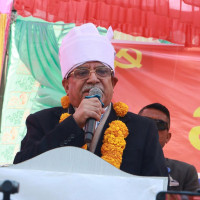- Saturday, 14 February 2026
Preventing Abuse Of Social Media
Social media have been part and parcel of the vast majority of people around the world. At present, around five billion people use social media. In 2023, the number of such people was estimated at 4.9 billion. Among the social media apps, Facebook, YouTube, WhatsApp, Instagram and WeChat rounded out the top five as ranked by active monthly users (Wong and Bottorff, 2023). Social media go beyond geographical or jurisdiction boundaries. They connect people around the world, enabling them to share information and develop knowledge. Social media have played a vital role in easing communication. Information on events happening in one part of the world can be shared all over the world in a twinkling through social media. Despite numerous merits, social media are not without defects.
Social media are often used for nefarious purposes. Evil activities carried out through social media include harassment, bullying, stalking, spread of misinformation and disinformation, emotional threatening, denigration, trolling, hate speech, rumours, doxxing (sharing personal information without consent) and the like. Such activities may have adverse impacts on individuals, especially children, adolescents and girls and women. Children, adolescents and girls and women are considered a vulnerable group. Such impacts may lead to anxiety, depression, low self-esteem, social isolation and other adverse effects. The degrees of such impacts depend on the severity of abuse.
Negative effects
In Nepal, too, negative effects of the abuse of social media are manifesting themselves. Trolling, use of abusive, raunchy or offensive language, hate speech to the point of character assassination, publicity aimed at giving credit to a wrong person and the like have been the order of the day. Most social media platforms have in-built reporting systems to flag and tackle abusive content. But this does not seem to be enough. Digital abuse through social media and technology abuse such as texting and social networking for the purpose of bullying, harassing, stalking or intimidating others is taking place. So it has been urgent to tame the abuse of social media.
Social media are also used to embark upon smear campaigns against leaders, politicians, high-ranking government officials and others. Some campaigns may be so harsh that they are aimed at character assassination. Others may expose so-called wrong activities. Still others may be aimed at propagating disinformation rather in a Goebbels style in such a way that the credit for development works done by one is given to someone else. In fact, social media are full of misinformation and disinformation.
Against this backdrop, the government has recently registered a Bill related to the operation, use and regulation of social networking sites in parliament. After due endorsement, the Bill will become an Act. There are several provisions regarding preventing the abuse of social media though fines, imprisonment or both. As per the Bill, social media cannot be run without government permission. Those violating this provision will be subjected to a fine of up to Rs. 2.5 million. This provision is aimed at preventing the haphazard operation of social media. Those carrying out activities to the detriment of national interests through social media will be punished. It may be noted that such anti-national activities are a punishable offence.
Harassment, cyberbullying, cyberstalking, phishing and extortion or sextortion are all punishable offences as per the Bill. There are many people who post on Facebook and other apps using fake identities or anonymous identities. Such people tend to use abusive, aggressive or threatening language. It has been exigently necessary to tame such users. The Bill is aimed at taming such people through a legal mechanism.
There is a tendency on the part of miscreants to post obscene videos. Some of such videos are intended to denigrate or publicly shame others. The tendency of uploading and spreading deepfakes is on the rise nowadays. Such deepfakes are aimed at defaming or assassinating the character of high-profile people such as celebrities, business tycoons or leaders/politicians. Some people also upload pictures showing violence, brutality or disgust. Such pictures may offend some people, especially those with a weak heart. With the enforcement of the social media act after the passage of the Bill, the offenders will have to face the music.
Some people have expressed exception to some provisions of the Bill, arguing that it seeks to curtail press freedom or the freedom of expression. The freedom of expression is guaranteed in the constitution of Nepal. In a democracy, various freedoms are ensured. However, freedom does not mean you can do what you want. Some people may use their freedom to the point of harming or disturbing others, which is not desirable. The provisions of the Bill are not only relevant but also essential in the context of some social media users crossing the boundaries of decency and indulging in using abusive language.
Protocols
Every field has its own norms and values. Such norms and values need to be respected. Transgressing such norms and values cannot be acceptable. Similarly, social media also have their own protocols. People should use social media without infringing such protocols. Social media should be used as a platform for good purposes such as sharing useful information, enhancing rapport with people from different countries, enhancing knowledge and learning about happenings around the world. They should be used as a forum for keeping abreast of the times.
They should not be used for negative purposes. If a person uses social media by abiding by protocols, there will be no question of infringing the freedom of expression. It seems those who indulge in abusing social media for self-gratification or some other purposes such as posting with fake identities or anonymously, trolling, posting raunchy or defamatory content or propagating false information have been terrified of the provisions of the bill.
(Maharjan has been regularly writing on contemporary issues for this daily since 2000.)














